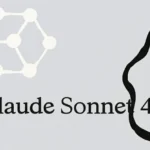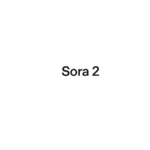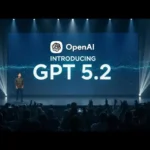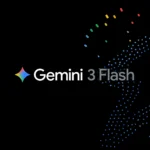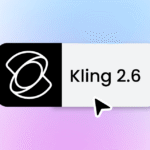Artificial intelligence is no longer just a behind-the-scenes tool—it’s stepping into the spotlight. From generating artwork to writing copy, AI has transformed creative industries. But when it comes to video, authenticity has always been the biggest challenge. Too often, AI video generators produce results that look robotic, feel detached, or fall into the “uncanny valley.”
Enter GAGA-1, a breakthrough AI model designed not as a tool, but as a holistic digital actor. Instead of stitching together separate elements like voice, lipsync, and facial animation, GAGA-1 co-generates them in one unified performance. The result? A seamless, lifelike video that feels natural, expressive, and emotionally convincing.
This is more than another AI video generator. GAGA-1 is a new era of digital performance.
Table of Contents
What Is GAGA-1?
At its core, GAGA-1 is an advanced AI model that creates video and audio simultaneously, producing a complete digital performance. Unlike traditional AI video generators that first generate speech and then try to sync lip movements after the fact, GAGA-1 treats voice and expression as inseparable.
Think of it this way: A human actor doesn’t consciously separate their words from their facial expressions—they happen together. GAGA-1 works the same way. Every raised eyebrow, every subtle smile, and every vocal inflection emerges as part of one coherent performance.
That’s why GAGA-1 is positioned not just as an AI video generator, but as the first true holistic AI actor.
The Problem With Existing AI Video Generators
Traditional AI video generators face a series of well-known limitations:
- Disjointed lip sync → Voices and lip movements often feel slightly out of step, breaking immersion.
- Lack of emotional depth → Facial animations look flat, and expressions rarely match tone.
- Uncanny valley effect → Viewers can instantly sense something artificial, even if they can’t explain why.
- Fragmented workflow → Separate tools handle text-to-speech, lip sync, and facial animation, leading to a stitched-together look.
For content creators, marketers, and filmmakers, these shortcomings mean extra editing, reduced impact, and lower audience engagement.
This is the gap GAGA-1 fills.
How GAGA-1 Works: Holistic AI Performance
The innovation behind GAGA-1 lies in its co-generation architecture. Instead of creating voice, lip sync, and expressions in isolation, GAGA-1 generates them together in real time.
Here’s what makes it different:
1. Voice Alignment
The voice is not added later—it’s born within the model’s generation process. This ensures perfect lip sync without awkward mismatches.
2. Micro-Expressions
GAGA-1 captures subtle human expressions—tiny shifts in the eyes, lips, or brows—that bring performances to life.
3. Context-Aware Emotion
Instead of generic animation, GAGA-1 adjusts tone and delivery based on the context of the script. Whether it’s a heartfelt message or a powerful speech, the performance matches the emotion.
4. Holistic Actor Simulation
The voice and face aren’t two separate outputs—they’re a single, unified performance. Just like a real actor, GAGA-1 doesn’t “think” about syncing; it simply performs.
This co-generation approach eliminates the patchwork feeling of older AI video generators and delivers something far closer to authentic acting.
Why GAGA-1 Feels Real
The secret to GAGA-1’s realism is simple: authenticity comes from unity.
When a human speaks, their voice carries emotion while their face reacts in harmony. Traditional AI video generators try to simulate this by layering separate models on top of each other—but the seams always show.
GAGA-1 avoids this trap by generating everything in one pass. The result is a performance where:
- The voice carries natural emotion, not robotic monotone.
- The lip sync is flawless, matching syllables precisely.
- The expressions flow naturally, from joy to surprise to empathy.
It’s not just convincing—it’s cinematic.
Use Cases of GAGA-1
Because of its holistic design, GAGA-1 is versatile across industries. Here are some of the most powerful applications:
1. Content Creation & Influencer Marketing
Creators can generate authentic video content faster and cheaper. GAGA-1’s realism keeps audiences engaged, boosting retention and trust.
2. Brand Campaigns & Advertising
Brands can launch AI-driven campaigns with actors who never tire, never need reshoots, and can be customized endlessly—while still feeling real.
3. Education & Training
Teachers and trainers can use GAGA-1 to build lifelike virtual tutors. The holistic AI actor makes learning more engaging and personal.
4. Film & Entertainment
Filmmakers can use GAGA-1 to prototype scenes, generate supporting characters, or even create fully digital performances.
5. Corporate Communication
Companies can deploy realistic digital presenters for announcements, onboarding, and HR training—saving time and resources.
GAGA-1 vs. VEO 3 vs. Sora 2
When it comes to next-generation video AI, three models are shaping the conversation: GAGA-1, VEO 3, and Sora 2. Each has its strengths, but they target very different use cases.
| Feature / Model | GAGA-1 | VEO 3 | Sora 2 |
| Positioning | Holistic AI actor; free & cost-effective | Premium cinematic AI video generation | General-purpose multimodal video generation |
| Free Trial | Yes | No | Limited waitlist access |
| Cost Comparison | 10× cheaper than VEO 3 | High-end; enterprise pricing | Likely premium pricing tier |
| Target User | Content creators, studios, budget-conscious users | Studios, filmmakers, enterprise campaigns | Broad: creators, brands, experimental projects |
| Performance Focus | Voice + lip sync + acting, unified in one | Cinematic realism, film-quality shots | General video realism, broad scene control |
Key Takeaways
- GAGA-1 is optimized for holistic performance acting—voice, lipsync, and emotion are born together. It’s accessible, fast, and affordable.
- VEO 3 specializes in cinematic storytelling with rich camera movement and scene complexity, but at a premium cost.
- Sora 2 positions itself as a general-purpose AI video generator, capable of handling a wide range of scenes and tasks, but less focused on acting performance.
In short: if you need a digital actor, GAGA-1 is unmatched. For blockbuster-style cinematic shots, VEO 3 shines. And if you want a general AI video lab, Sora 2 is the exploratory option.
The takeaway? GAGA-1 delivers performance at a fraction of the cost.
Introducing GAGA-1 Pro: The Next Generation
Building on the success of GAGA-1, the new GAGA-1 Pro model represents a significant leap forward in holistic AI video generation. Here’s what sets it apart:
Voice Reference Technology
GAGA-1 Pro introduces a groundbreaking voice reference feature that allows users to upload custom voice samples. This means you can create digital actors that match specific vocal characteristics—whether it’s maintaining brand consistency across campaigns or creating personalized content at scale.
Enhanced Clarity & Quality
Compared to the standard GAGA-1 model, GAGA-1 Pro delivers noticeably higher visual clarity and improved generation quality. Every detail—from skin texture to subtle eye movements—is rendered with greater precision.
Significantly Faster Generation
Speed matters in production environments. GAGA-1 Pro achieves dramatically faster generation times without compromising quality, making it ideal for rapid content creation and iterative workflows.
Flexible Aspect Ratios
While GAGA-1 supports 16:9 format, GAGA-1 Pro expands creative possibilities by supporting both 9:16 (vertical/mobile-optimized) and 16:9 (horizontal/traditional) aspect ratios—perfect for social media content, mobile apps, and traditional video platforms.
Model Comparison: GAGA-1 vs. GAGA-1 Pro
| Feature | GAGA-1 | GAGA-1 Pro |
| Voice Reference | Not supported | ✓ Upload custom voice samples |
| Aspect Ratios | 16:9 only | 9:16 and 16:9 |
| Generation Speed | Standard | Significantly faster |
| Visual Clarity | High quality | Enhanced clarity |
| Generation Quality | Cinema-grade performance | Improved quality with better details |
| Best For | Stable, reliable holistic performances | Advanced customization and faster workflows |
The Future of Digital Actors
As models like GAGA-1 advance, the line between human and digital performance will continue to blur. Imagine:
- Personalized brand ambassadors available 24/7.
- On-demand film characters for indie creators.
- Virtual teachers delivering lessons across languages.
- AI actors capable of performing in real-time, interactive settings.
But with this innovation comes responsibility. Ethical considerations—like consent, transparency, and avoiding misuse—will be crucial in shaping the industry.
Still, one thing is clear: holistic AI actors like GAGA-1 are the future of video.
Conclusion: Why GAGA-1 Matters
GAGA-1 isn’t just another AI video generator. It’s the first holistic AI actor—a model that treats voice, lipsync, and performance as inseparable. By co-generating everything in one unified process, GAGA-1 delivers realism that feels truly human.
For creators, brands, educators, and filmmakers, this means faster production, lower costs, and higher audience engagement. For audiences, it means more authentic, immersive experiences.
The age of digital performance has arrived—and GAGA-1 is leading the way.


